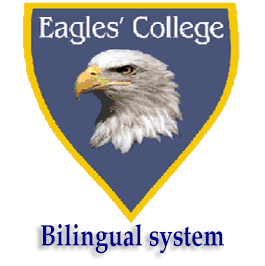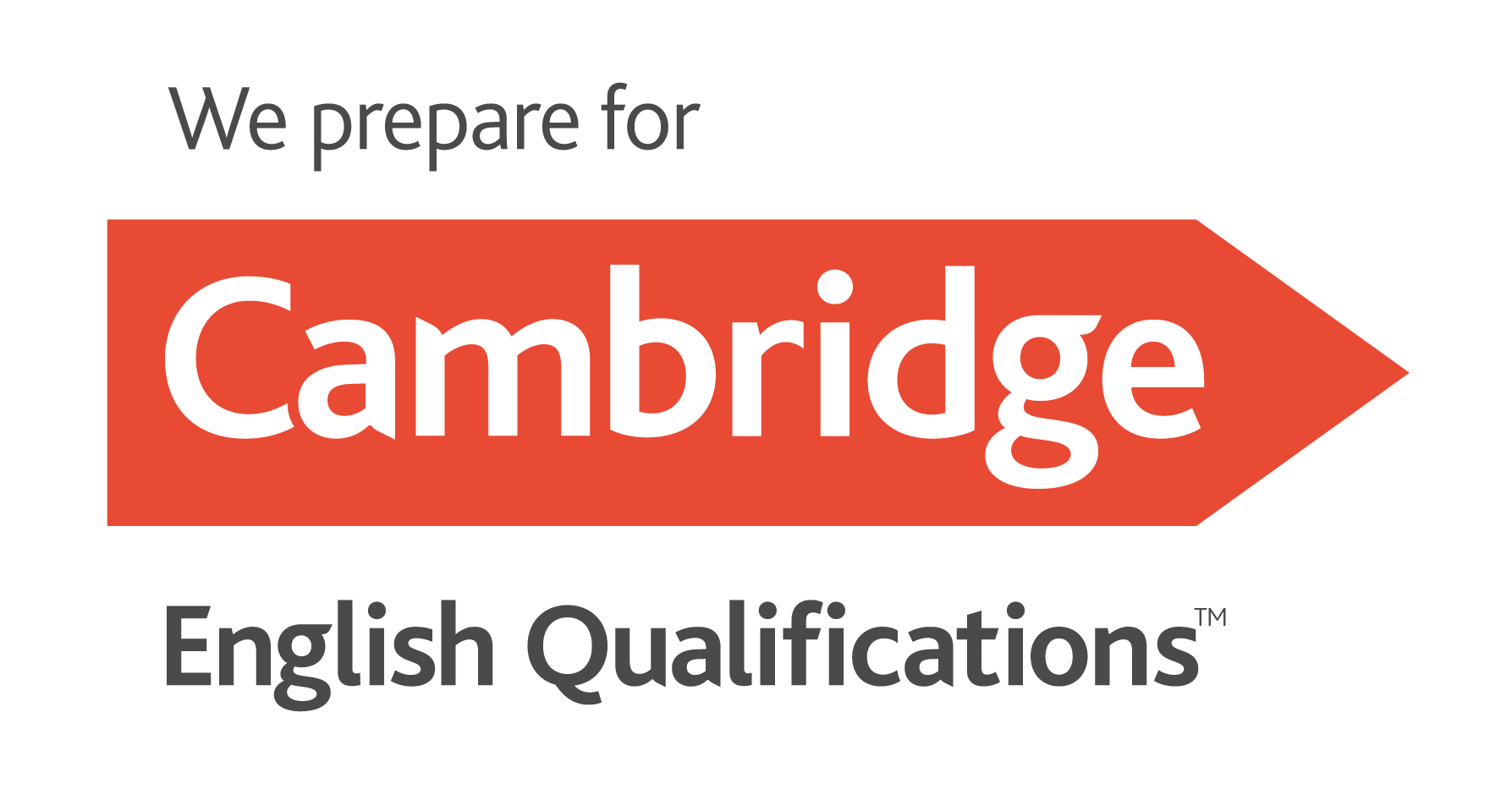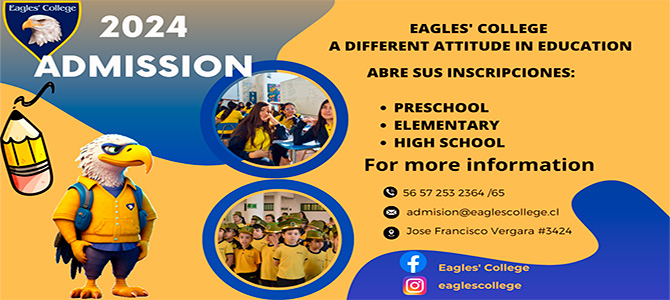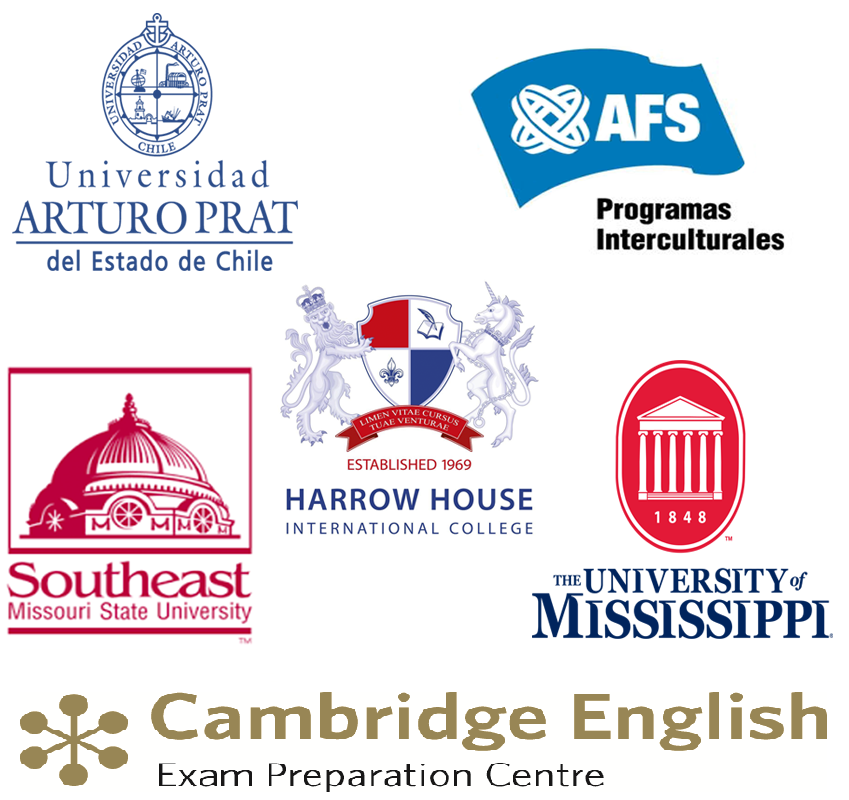Our English Curriculum in High School is based upon our own programs approved by the Ministry of Education. They consist of intensive training divided into levels, considering that the students from grades one through eight receive instruction in specific subject areas in the English language.
High School Students continue with the concepts of “learning by doing” and “classroom without walls” from our Elementary School program. Our students experience meaningful learning experiences which have been designed taking into account different learning styles. Also, inter-personal relationships are supported by reflection and dialogue firmly based upon responsibility and respect.
Eagles’ College strives to achieve academic excellence by developing a love for learning, responsibility, perseverance, independence, and self awareness. Strong academic achievement resulting from personal growth is the final goal of our school. We invite you to complete your High School training at Eagles’ College, “A different attitude in Education”.
Curriculum
The High School program at Eagles` College follows the Ministry of Education’s design in all subject areas except English which has its own approved programs. It is taught during eight class periods broken into levels according to the English proficiency of the students. It is a goal of the program that the students will be evaluated by an international exam to verify their proficiency level when finishing High School.
Vocational guidance is provided through fieldtrips, professionals speaking about their careers, and utilization of a series of tests which help student identify their interests and aptitudes in order to make decisions on elective classes in Eleventh Grade and a career of study when leaving High School.
Evaluation
The evaluation process in High School is very similar to that in the Elementary School. It is an important part of the learning process and takes different forms according to our Internal Evaluation Policy. It indicates the level of the student in relation to the objectives which need to be reached and from which decisions can be made to improve. Having been trained to work independently, High School students must be responsible for their own learning and to complete corrective tasks when needed. They must understand that grades are the result of responsible and systematic work. Also, they must view long range goals as part of the process of study for a career, and understand that what is happening at present will be essential for future achievement.
Class size
Eagles’ College maintains a maximum class size of 25 students per class, which allows the personalized learning interactions to occur using a variety of activities to meet the needs of students with different learning styles.
The school day
At Eagles’ College, Elementary and High School students have the same schedule from 7:45 A.M to 16:00 P.M. with two recesses of fifteen minutes, and a 45 minute lunch break.
There are three alternatives for lunch: going home to eat lunch or bringing your lunch to school, or having an external independent lunch service bring food to school. High School students have their own area in the dining room equiped with a refrigerator and three microwaves to heat meals. The school provides dishes, spoons, knives, forks, paper napkins and bottled water. At 13:25, students brush their teeth and rest. Al 13:45 classes resume until 16:00. The students are supervised by staff during the lunch and recess periods.
Fieldtrips
Our policy of “classrooms without walls” is an outstanding characteristic of Eagles’ College. Augmenting the learning process with direct contact with the real world situations, ensuring understanding and meaningful learning, and providing settings for the connection of crosscurricular objectives. These experiences help develop awareness of vocational issues when students are considering different careers
Values education
Our school permanently reinforces family values such as respect, responsibility, honesty, obedience, generosity, friendship, fellowship, tolerance and solidarity. Each month, a value is emphasized and discussed. At the end of each month, students who have shown in practice the value receive a diploma in an all school assembly. Furthermore, the content in different subject areas involves fundamental value issues, which are emphasized, discussed and reflected upon.












